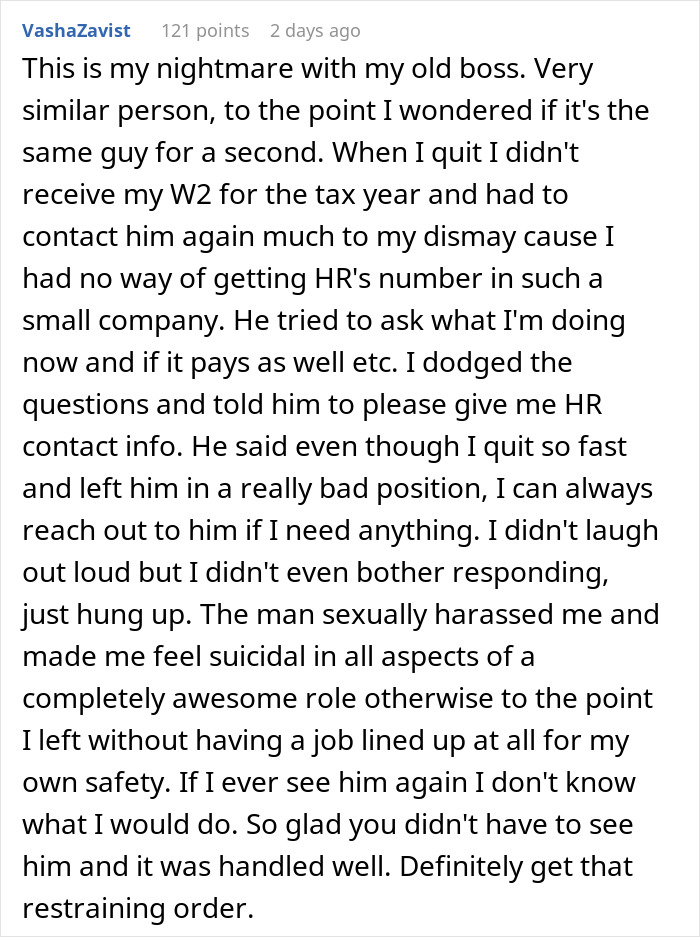Having a toxic boss or manager is more common than we might think. Data shows that 87% of professionals have had to deal with a toxic boss at some point in their lives. Other research reveals that 57% of people leave their jobs because of a toxic boss. But what if that’s not enough in some cases?
What if you have an obsessive boss who’s fixated on harassing you even after you quit? That’s what happened to this woman. She quit her job and moved to another city, but her former employer showed up at her new workplace. Seriously shaken up and unsure of what to do, the woman asked for advice on the r/antiwork subreddit.
This story of a toxic boss harassing his employee turned into a borderline stalking case

Image credits: AmnajKhetsamtip (Not the actual photo)
The employee changed jobs and moved to another city to get away from her boss, but he found her anyway
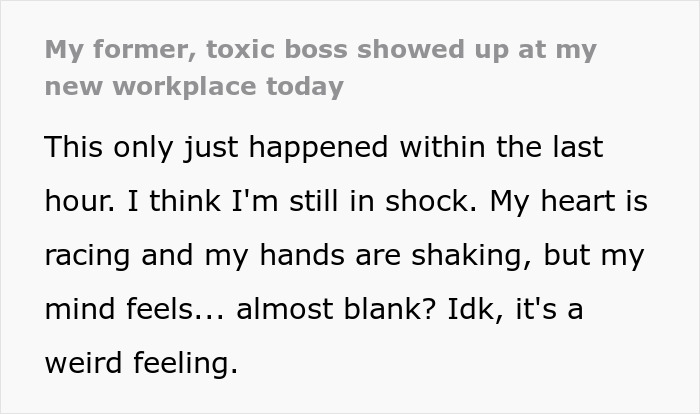
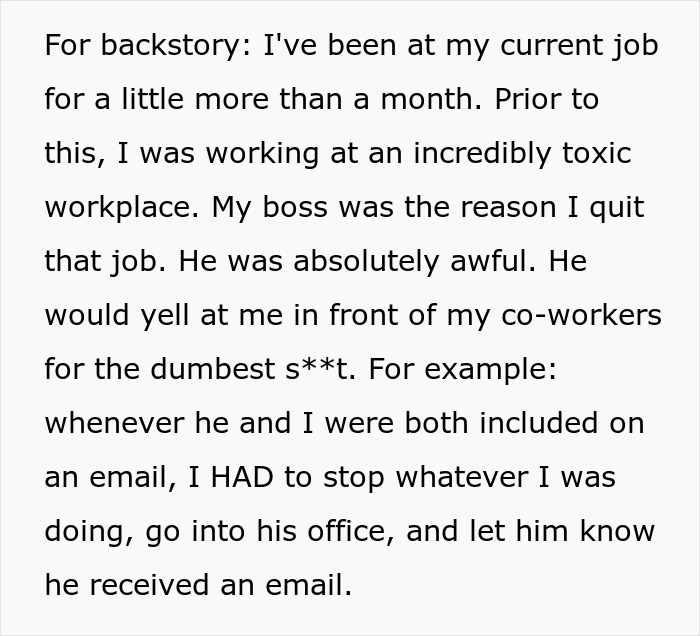
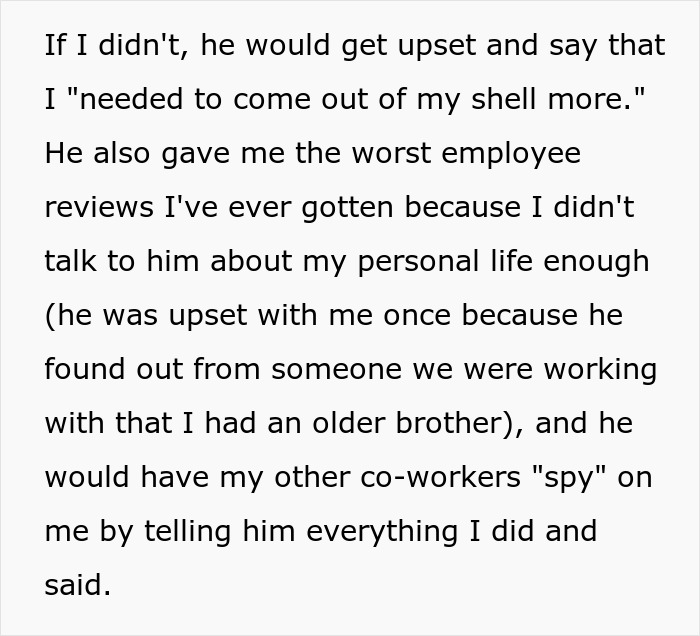

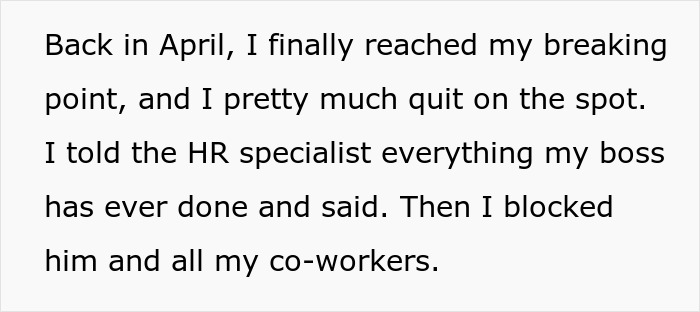

Image credits: nateemee (Not the actual photo)

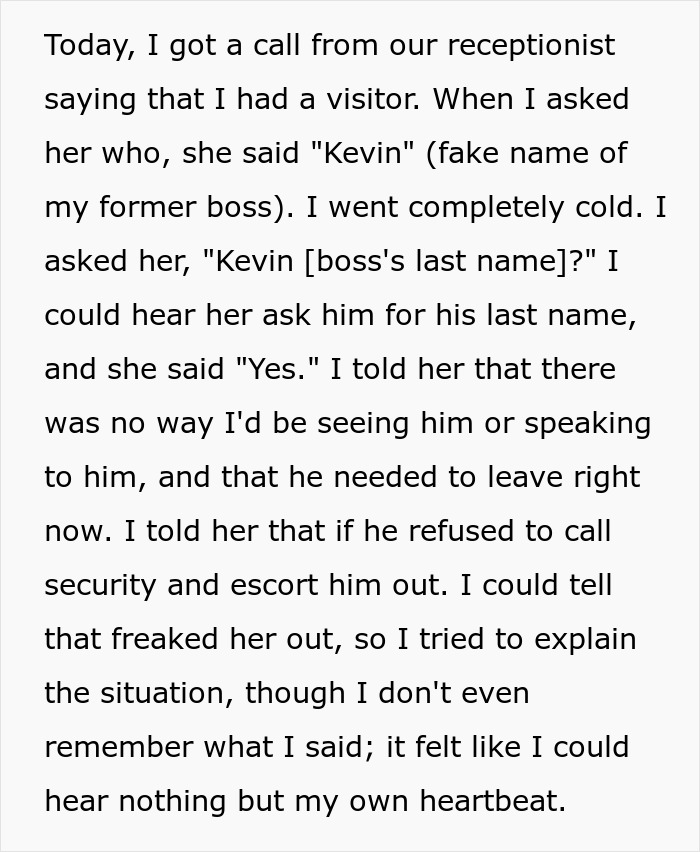


Image credits: AdMysterious7891
The woman detailed her boss’s harassment in previous posts
This is not the first time Redditor u/AdMysterious7891 shared her woes with the toxic boss. Six months prior, she posted a story where her boss complained about his holiday bonus. His sentiment was incredibly tone-deaf because he was making six figures. He whined how he only got $100k, while his employee’s bonus was a mere $200.
Even then she mentioned some of his inappropriate behavior. The boss allegedly gave her a poor performance review because she didn’t talk enough about her personal life with him. Some other scorching red flags included him asking if she had a boyfriend, whether anyone’s ever given her a hickey, and constantly telling everyone he’s an ‘alpha male.’
The harassment continued as the boss, who’s in his 40s, humiliated the 28-year-old employee in front of her colleagues by calling her “stupid” and “lazy.” In her other post only two months ago, the young woman detailed some things the horrible boss did to her: yell at her for not attaching him to an email and hugging her when she explicitly asked him not to.
But perhaps most disturbing was how he asked other colleagues to spy on her. “One of them who I thought I could trust would always come to me and talk about [how] much he hated our boss, and as soon as I said anything in agreement, he would run to our boss and tattle on me,” she recounted in her post.
She then started gray-rocking her boss: she spoke as little as possible, didn’t react to his behavior, and only responded with one-word answers. Her decision only seemed to aggravate him, as one day, he told her point-blank that she was not “allowed” to leave. However, even back then she was looking for another job, which brings us to the present day.

Image credits: Marc Mueller (Not the actual photo)
Victims of stalking need to document the incidents, cut contact with the stalker, and file a report with local law enforcement if necessary
What started as a workplace harassment case has become a full-blown stalker story. As u/AdMysterious7891 no longer works with this man, she has no obligation to maintain any kind of contact with him. Research shows that 42% of stalkers are acquaintances and that one in three women experience stalking. So, this Redditor’s situation is, sadly, a common one.
Following a person and showing up to places where they are is one of the top signs of stalking. It is completely normal for victims of stalking to feel vulnerable and unsafe, as there often is no way to know what the stalker is capable of doing. Victims also might feel anxious and hypervigilant or isolated because people don’t understand why they’re afraid.
The Redditor was right not to meet him in this instance; experts say ending all contact is the best way not to encourage the stalker. People in the comments already gave some great advice for u/AdMysterious7891: to contact the local law enforcement. Even if they don’t do anything now, they’ll have the case documented, and if the boss steps out of line again, he’ll be on their radar.
If he tries to contact or see her again, she can file a restraining order. To make her case more compelling, putting all that happened in writing is essential. The Scottish Women’s Rights Center urges victims of stalking to keep a record of the stalking incidents, including time, date, location, and how the incident made the victim feel.
They also claim it’s important not to feel isolated and find a support network. Although it can be hard to talk about stalking with other people, talking to someone you trust helps reduce stress and anxiety. Those who have a close support network can also feel safer and have help making a safety plan.
Another important safety tip is to secure one’s online accounts. The University of Southern California has excellent guidelines on how to protect your privacy online.

Image credits: Alessandro Bonanni (Not the actual photo)
People urged the woman to document everything that happened and report the former boss to the authorities

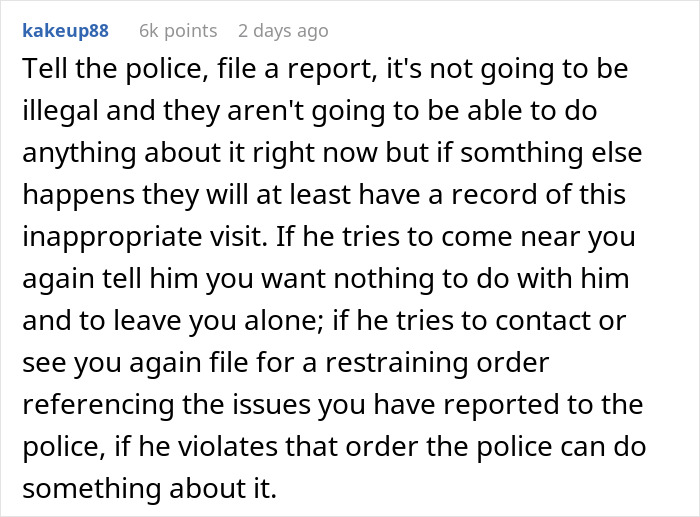
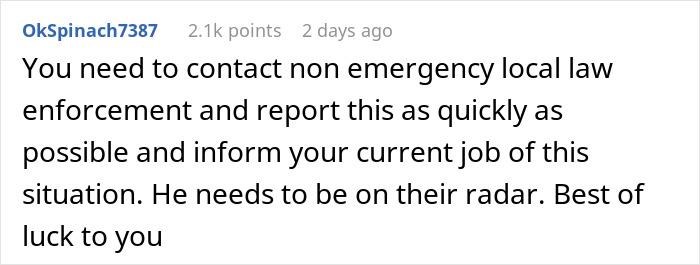
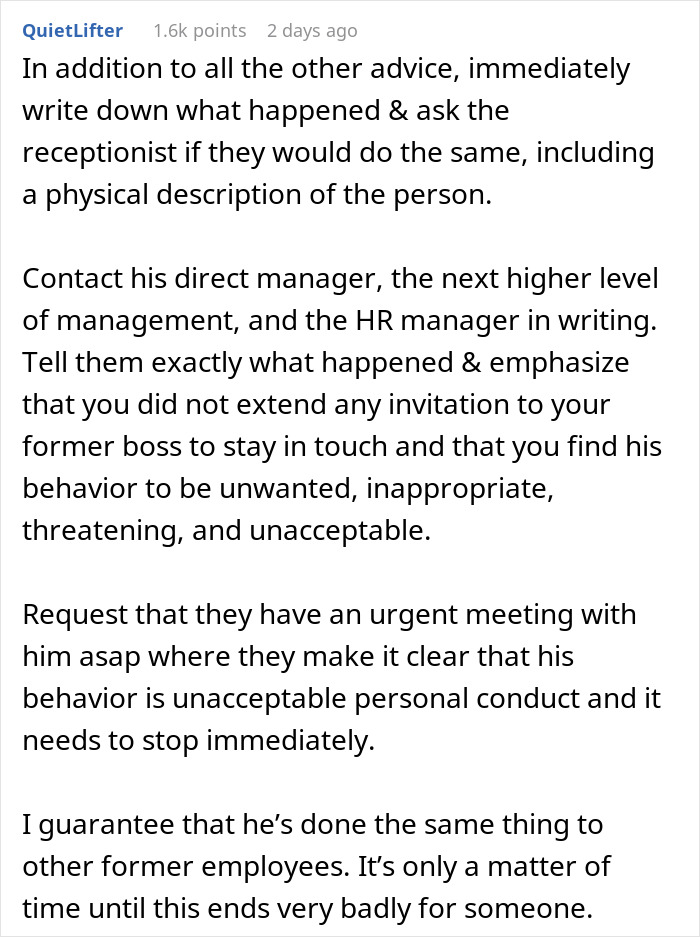

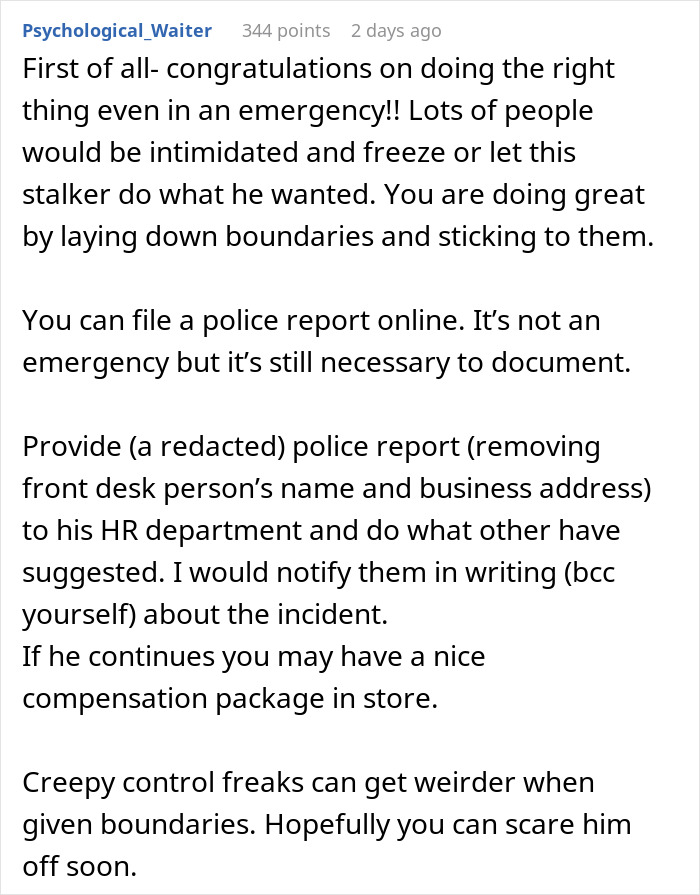
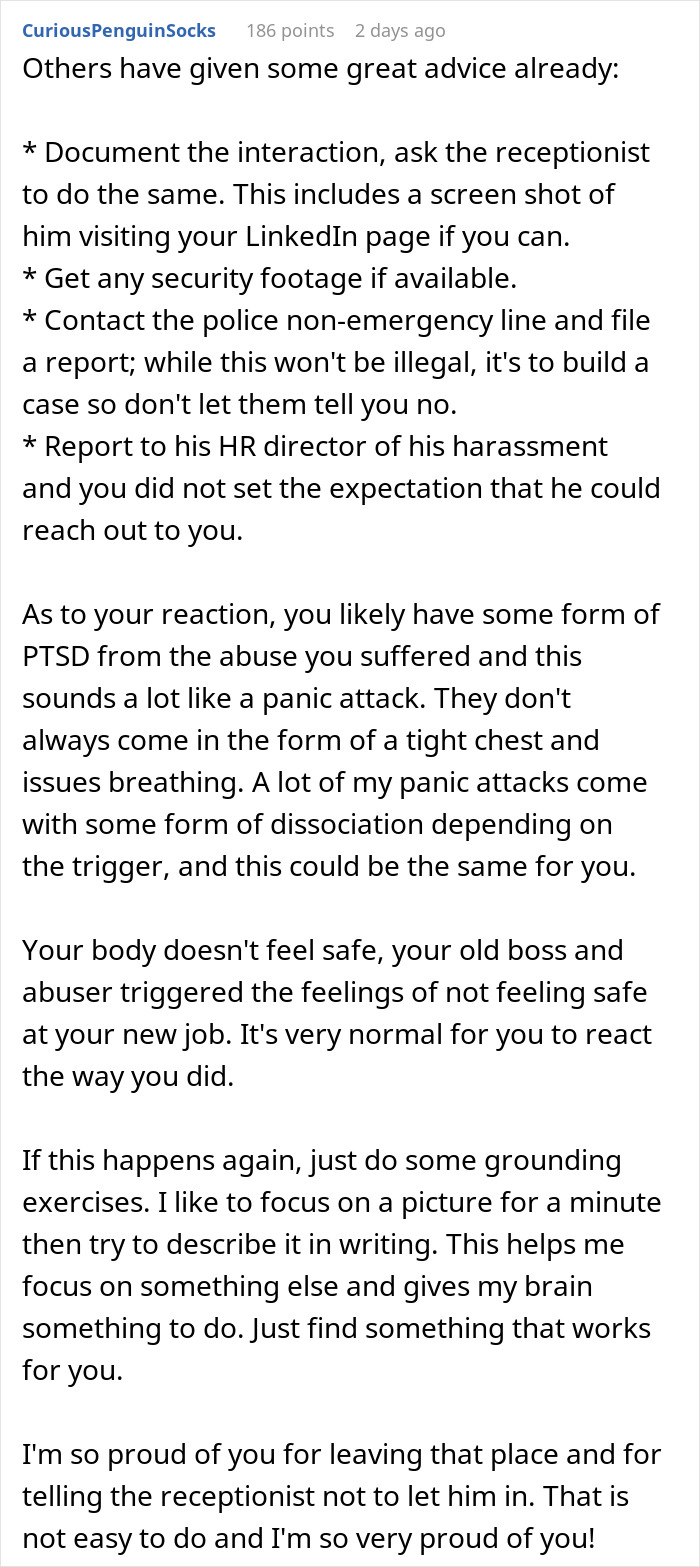


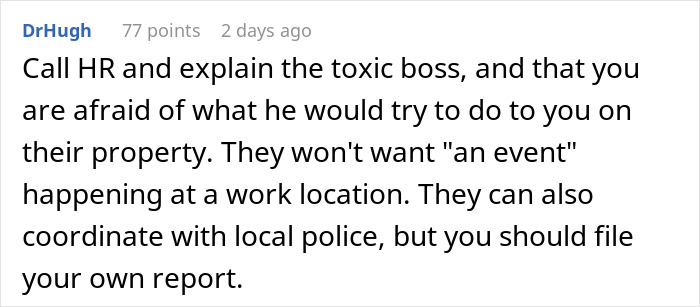



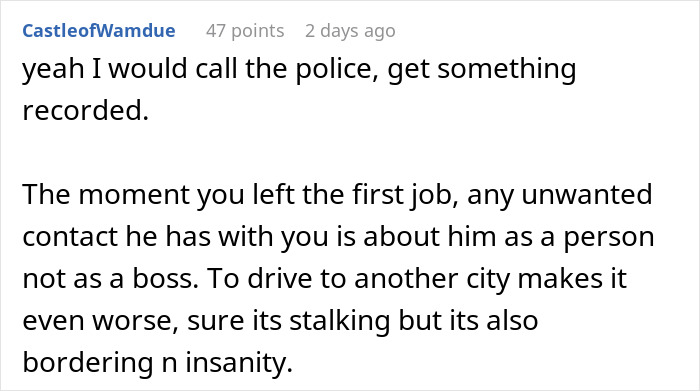

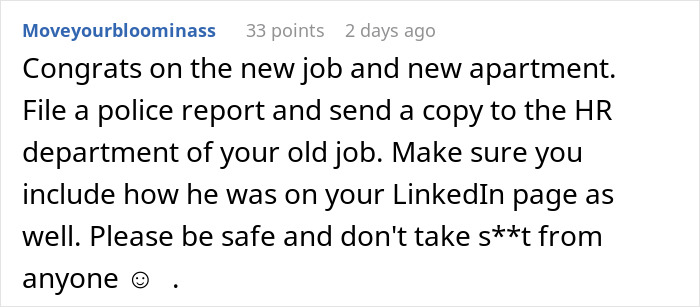


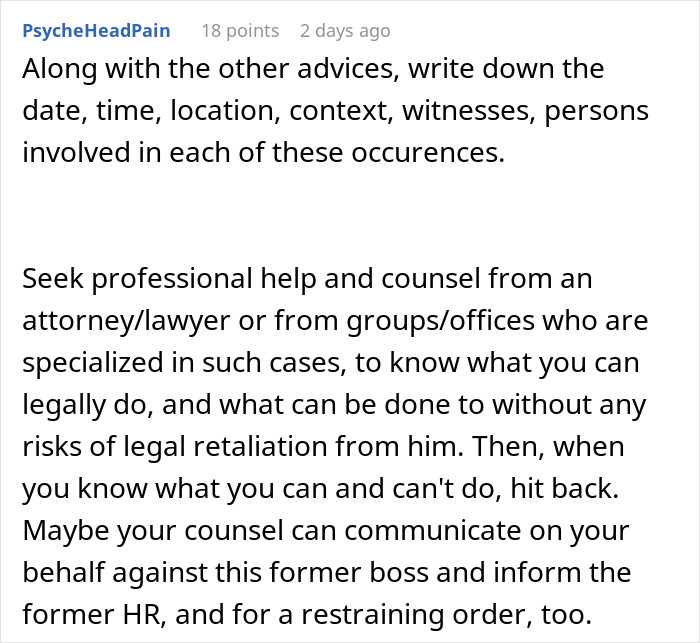
Many branded him a stalker


Other commenters shared similar stories
